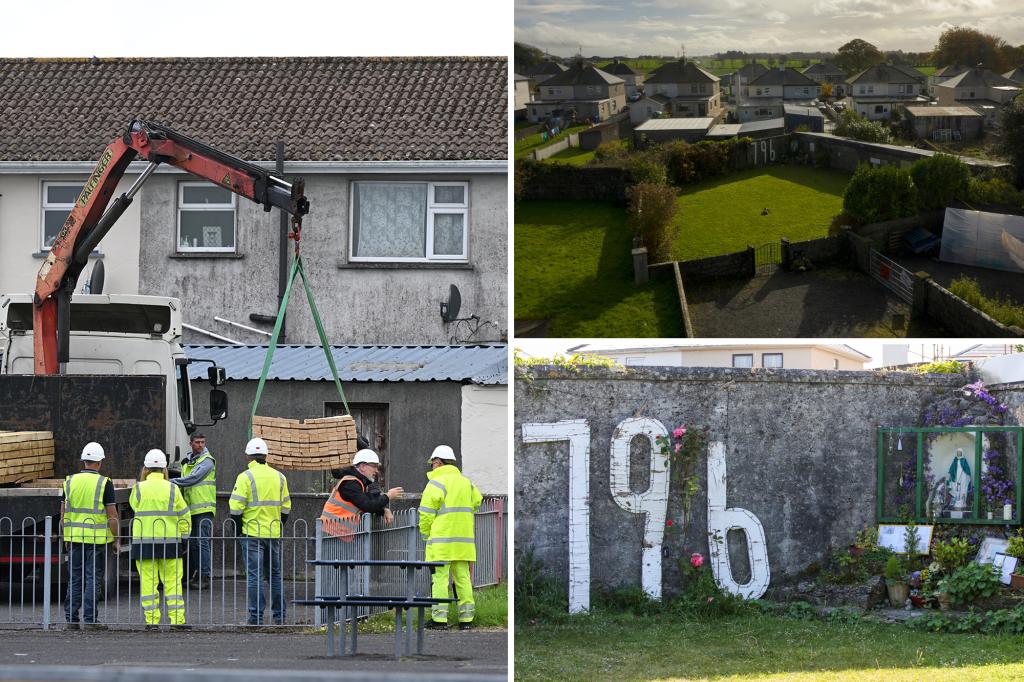Excavation Uncovers Tragic Legacy at Irish Mother and Baby Home

TUAM, Ireland – A grim excavation has begun at a former Catholic-run home for unwed mothers in Tuam, County Galway, where authorities expect to uncover the remains of nearly 800 infants and children. The site, now surrounded by modern apartments, once hosted the Bon Secours Mother and Baby Home, where local historian Catherine Corless’s research suggests many of these young lives ended in a septic tank.
Immediate Impact
The investigation follows the discovery of significant human remains beneath the grounds of the former institution, which operated from 1925 until its closure in 1961. Corless’s findings, which ignited public outcry in 2014, indicated that 798 children died at the home, with only two known burials in a nearby cemetery. The rest are believed to be interred in what was colloquially known as “the pit.”
798 children died at the home between 1925 and 1961, according to research.
Key Details Emerge
The Bon Secours home, demolished in 1971, was part of a network of institutions run by Catholic nuns. Unmarried mothers were sent here to give birth and perform unpaid labor, often separated from their children who were raised by the nuns and frequently adopted without parental consent. The full scale of the tragedy only came to light nearly a decade ago, prompting calls for justice and accountability.
Historical Injustice
The excavation, enabled by legislation passed in 2022, is expected to last up to two years. It aims to identify the remains and provide dignified reburials, offering closure to families affected by this dark chapter in Irish history. Annette McKay, whose sister is believed to be among the victims, expressed the emotional toll this has taken on families.
“I don’t care if it’s a thimbleful, as they tell me there wouldn’t be much remains left; at six months old, it’s mainly cartilage more than bone,” said Annette McKay.
Background Context
The Bon Secours home was one of many institutions in Ireland that subjected women and children to harsh conditions. Those who “reoffended” by having more children out of wedlock were often sent to Magdalene laundries, notorious for their treatment of so-called “fallen women.” These institutions, supported by the state, were part of a broader system of oppression that persisted until the late 20th century.
The Magdalene laundries system closed its doors in the 1990s.
What Comes Next
The Irish government issued a formal apology in 2014 and established a compensation scheme in 2022, which has distributed approximately $32.7 million to 814 survivors. However, the religious orders involved have not contributed to these reparations, despite appeals from victims and government officials.
The excavation at Tuam represents a crucial step in addressing past injustices and ensuring that the stories of these children are not forgotten. As the investigation unfolds, it serves as a stark reminder of the need for accountability and reconciliation in the face of historical wrongs.
As this story continues to develop, it remains a poignant example of the enduring impact of institutional failures and the quest for truth and justice.





